Street water runoff safe for veggies?
duluth_mn
11 years ago
Related Stories

GARDENING AND LANDSCAPINGTake a Winter Walk on the Safe Side
Learn how to handle snow, ice and other cold-weather landscape factors to minimize falls and damage
Full Story
SAVING WATER11 Ways to Save Water at Home
Whether you live in a drought-stricken area or just want to help preserve a precious resource, here are things you can do to use less water
Full Story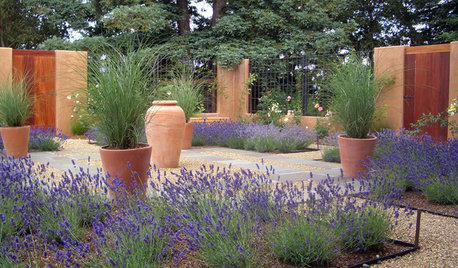
SAVING WATERXeriscape Gardens: How to Get a Beautiful Landscape With Less Water
Conserve water and make gardening much easier with the xeriscape approach’s 7 principles
Full Story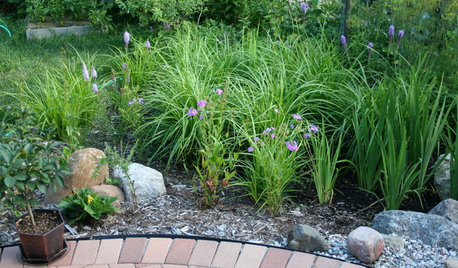
LANDSCAPE DESIGNHow to Site and Size a Rain Garden for Your Landscape
Installing a rain garden is an excellent way to reduce runoff and return water to its source
Full Story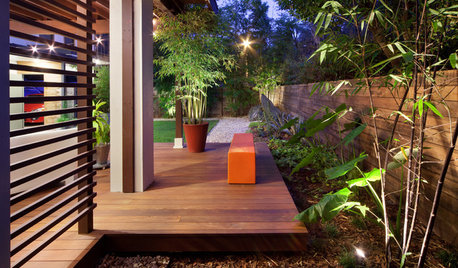
LIFEThe Top 5 Ways to Save Water at Home
Get on the fast track to preserving a valuable resource and saving money too with these smart, effective strategies
Full Story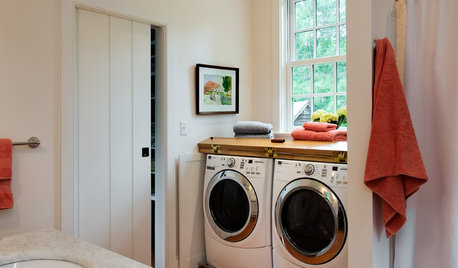
GREEN BUILDINGWater Sense for Big Savings
Keep dollars in your pocket and preserve a precious resource with these easy DIY strategies
Full Story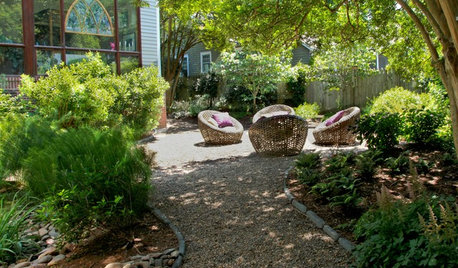
LANDSCAPE DESIGNEasy Ways to Manage Stormwater for Lower Bills and a Healthier Earth
Send cleaner runoff into local waterways and spend less on yard irrigation with these simple landscaping approaches
Full Story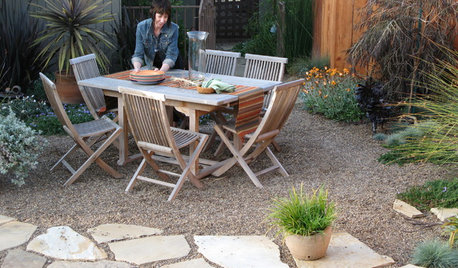
LANDSCAPE DESIGN15 Great Ideas for a Lawn-Free Yard
End the turf war for good with hardscaping, native grasses and ground covers that save water and are easier to maintain
Full Story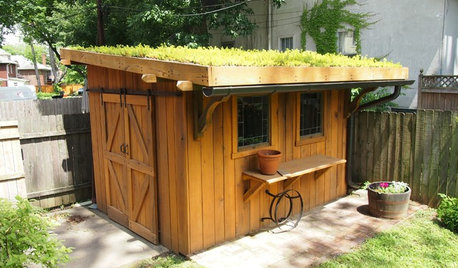
OUTBUILDINGSA Kentucky Garden Shed With a Planted Roof
Sedums help prevent runoff and add a green touch to this charming backyard building
Full Story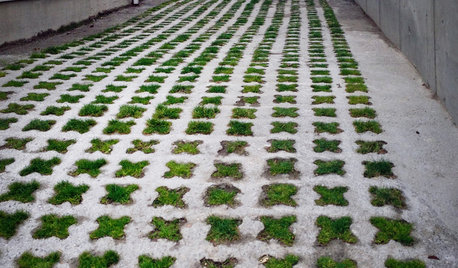
EARTH DAYHow to Build a Greener Driveway
Install a permeable driveway to keep pollutants out of water sources and groundwater levels balanced
Full StorySponsored
Your Industry Leading Flooring Refinishers & Installers in Columbus
More Discussions








Raw_Nature
Raw_Nature
Related Professionals
Kyle Landscape Architects & Landscape Designers · Taylorsville Landscape Architects & Landscape Designers · Zion Landscape Architects & Landscape Designers · East Patchogue Landscape Architects & Landscape Designers · Pelham Landscape Contractors · Addison Landscape Contractors · Doctor Phillips Landscape Contractors · Mason Landscape Contractors · St. Louis Landscape Contractors · Sun City Center Landscape Contractors · Wentzville Landscape Contractors · Greenfield Landscape Contractors · San Pablo Landscape Contractors · Brenham Driveway Installation & Maintenance · South Lyon Driveway Installation & Maintenancedigdirt2
sweetquietplace
lolauren
gardenlen
yukkuri_kame
duluth_mnOriginal Author